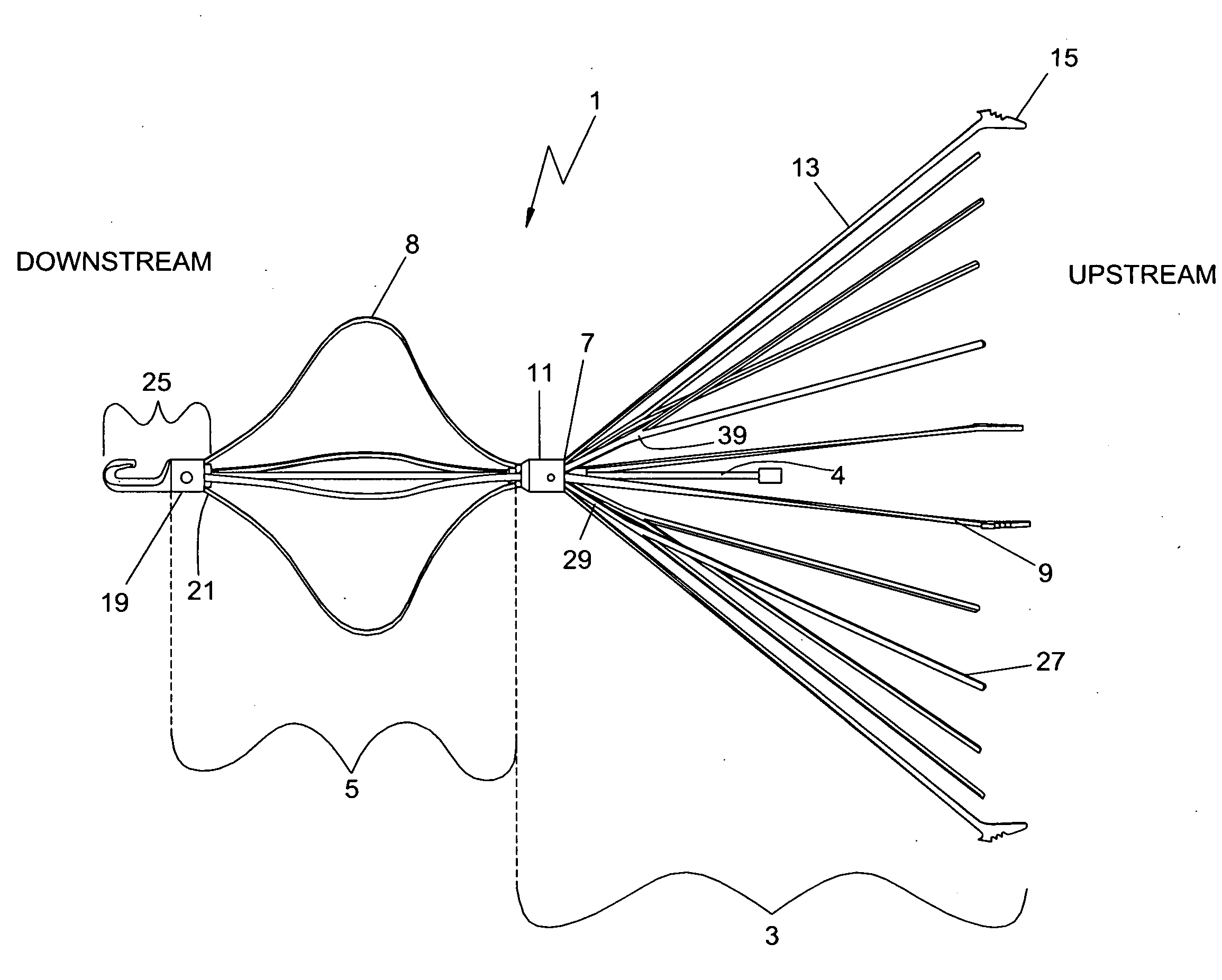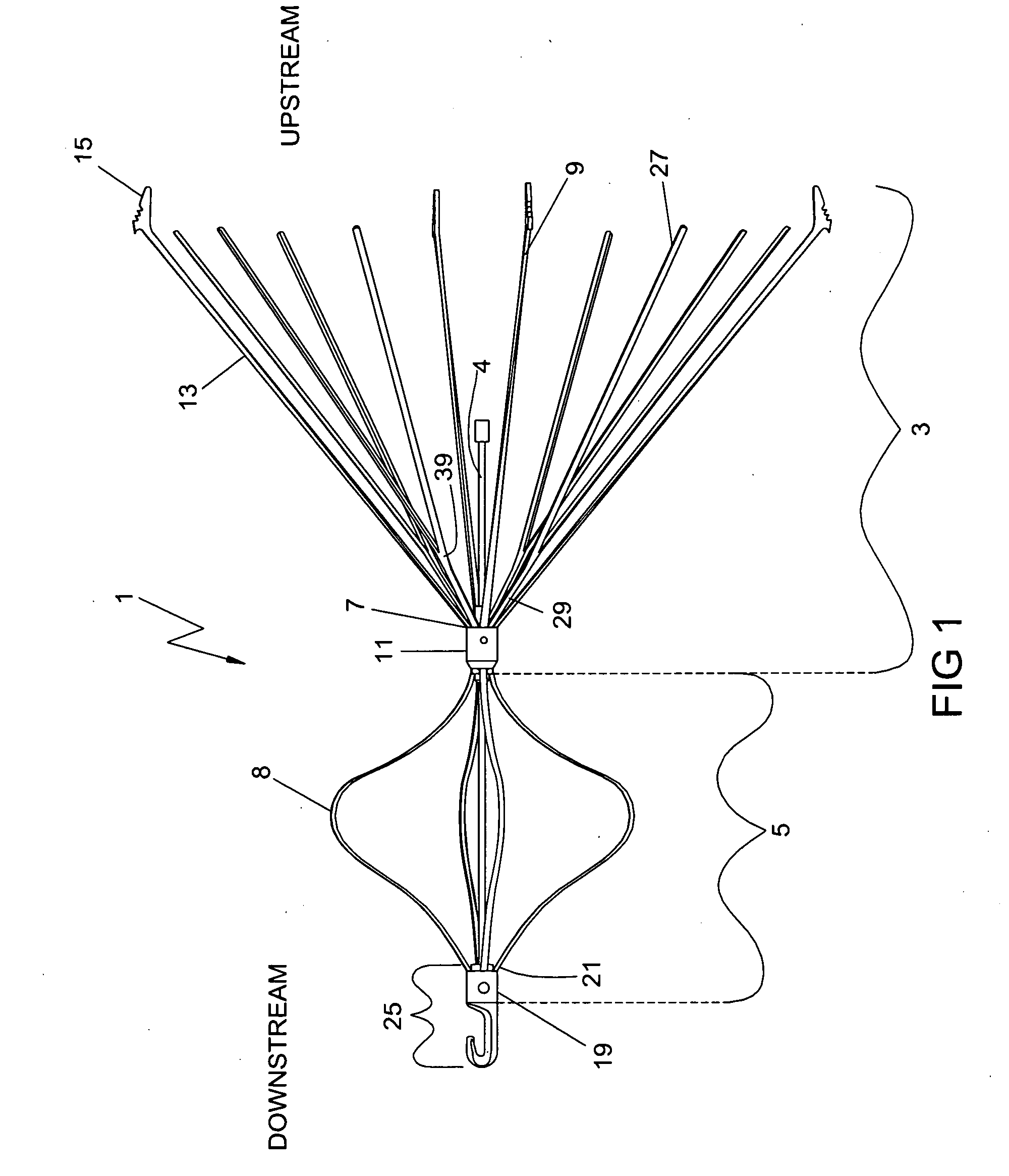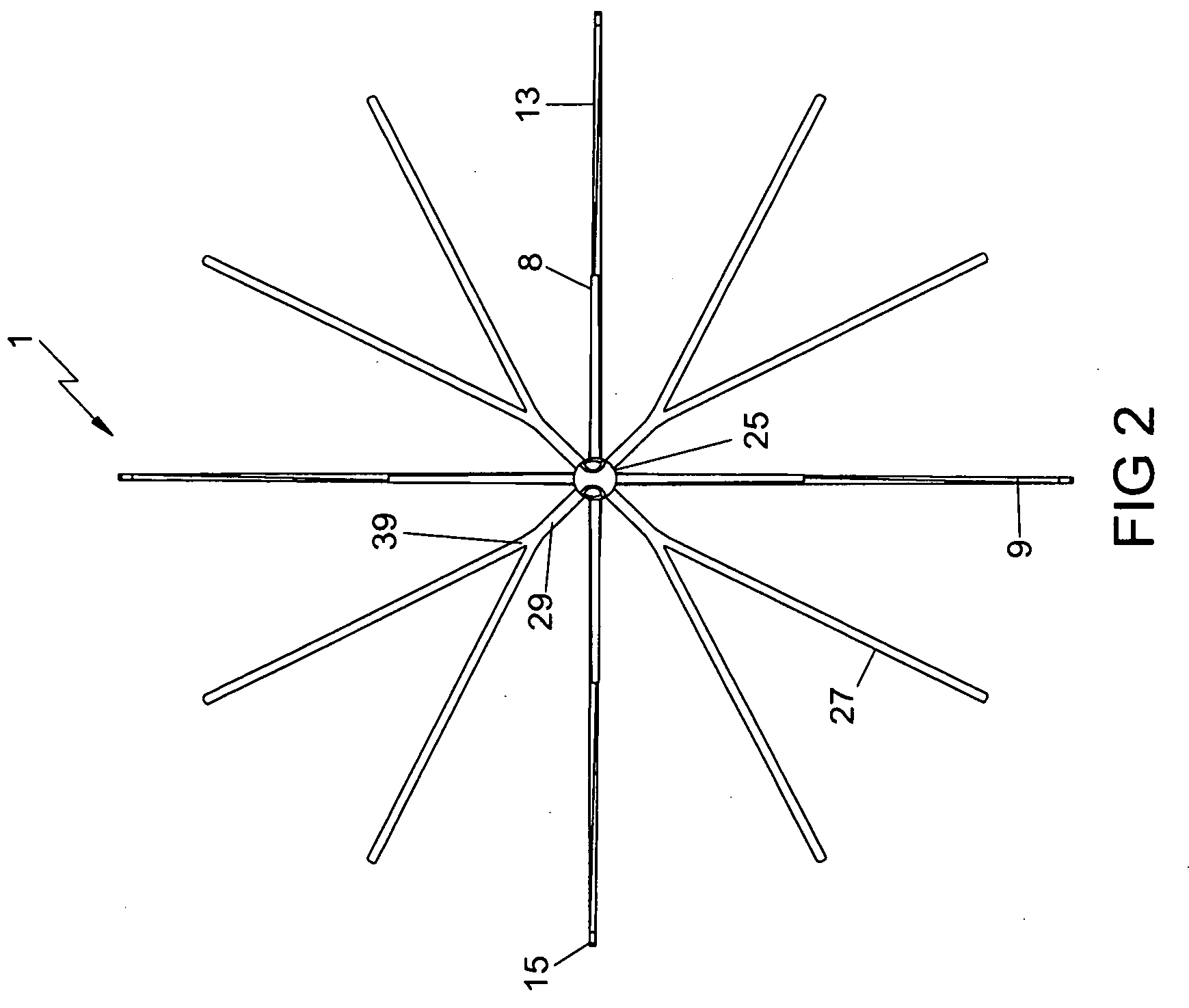Method of Retrieving a Blood Clot Filter
a filter device and blood clot technology, applied in the field of thrombosis capture and retrieval methods, can solve the problems of reducing the retrieval effort, reducing the retrieval efficiency, and prone to tilting and misalignment of the design,
- Summary
- Abstract
- Description
- Claims
- Application Information
AI Technical Summary
Benefits of technology
Problems solved by technology
Method used
Image
Examples
Embodiment Construction
[0040]For the purposes of the present application, the terms upstream and downstream refer to the direction of blood flow within a blood vessel. Accordingly, blood flows from an upstream direction towards a downstream direction. Also, it is important to note that although the filters disclosed herein are capable of being retrieved, they can be used as permanent filters without being retrieved.
[0041]Referring to FIG. 1, there is shown an embodiment of the present invention in a plan view of an expanded vena cava filter device 1. When deployed in the path of the bloodstream, typically in the vena cava vein, the filter device 1 captures blood clots of a predetermined size and prevents them from traveling further downstream.
[0042]The vena cava filter device 1 is comprised of a conical filtering section 3, an alignment section 5, a center shaft / rod 4 and a retrieval hook subassembly 25. The conical filtering section 3 captures and lyses blood clots, anchors the filter device 1, and preve...
PUM
 Login to View More
Login to View More Abstract
Description
Claims
Application Information
 Login to View More
Login to View More - R&D
- Intellectual Property
- Life Sciences
- Materials
- Tech Scout
- Unparalleled Data Quality
- Higher Quality Content
- 60% Fewer Hallucinations
Browse by: Latest US Patents, China's latest patents, Technical Efficacy Thesaurus, Application Domain, Technology Topic, Popular Technical Reports.
© 2025 PatSnap. All rights reserved.Legal|Privacy policy|Modern Slavery Act Transparency Statement|Sitemap|About US| Contact US: help@patsnap.com



